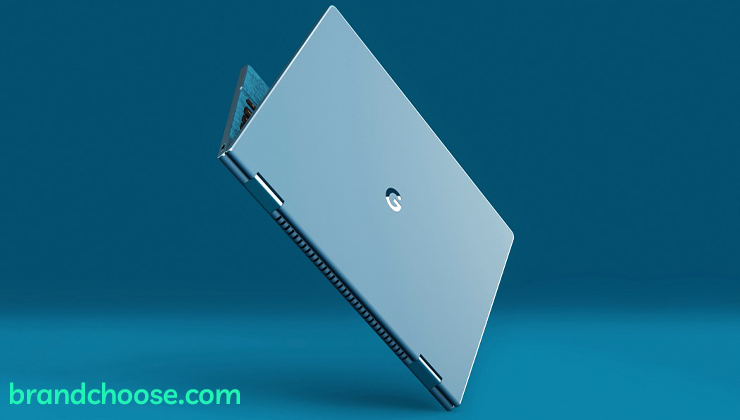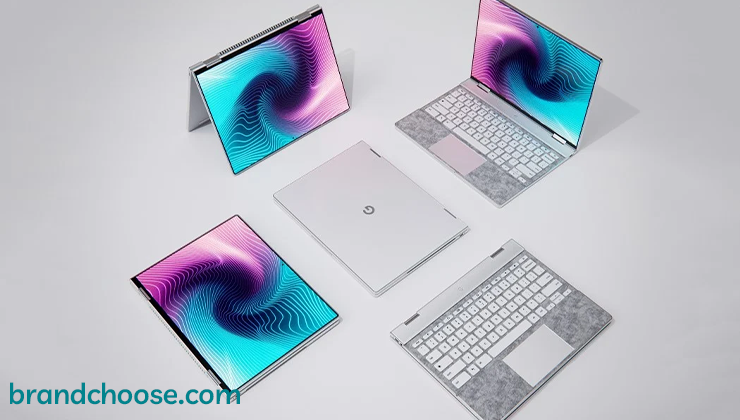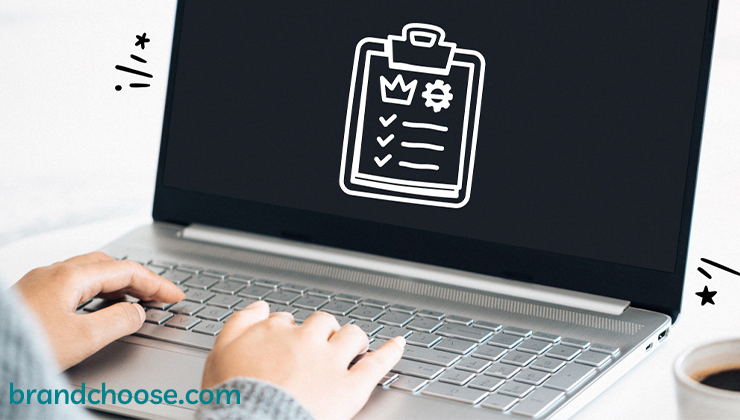Highlights
Chromebook specialists – Lightweight, cloud-based laptops
Easy-to-use designs – Minimalistic with Chrome OS
Educational focus – Not designed for gaming
Affordable and portable – Great for students or light users
Long battery life – Efficient power use
Limited offline functionality – Best for internet-reliant users
Google, a titan in the tech industry, redefines the laptop experience with its innovative range of Chromebook devices. From sleek and lightweight designs to seamless integration with Google services, Google laptops embody a fusion of style, performance, and simplicity. This article delves into what sets Google laptops apart, their strengths and weaknesses, and the effectiveness of Google's marketing strategies.

Product Selection
3.0 /5
Google, as a brand, has a limited but highly innovative selection of laptops under its belt. The flagship models are the Google Pixelbook and Pixelbook Go, both of which are known for their impressive performance, sleek design, and integration with Google's suite of applications. The Pixelbook, for instance, is a 2-in-1 laptop that features a high-resolution touchscreen and pen support, offering versatility that caters to a range of user needs. The Pixelbook Go, on the other hand, is a more traditional laptop that stands out for its lightweight design and long battery life. In terms of technology, Google's laptops are powered by Chrome OS, a lightweight, cloud-based operating system that offers seamless integration with Google Drive and other Google services. This is a major advantage for users who are already invested in the Google ecosystem. However, the limited product selection could be a downside for some users, especially when compared to brands like Dell, HP, and Lenovo, which offer a wider range of laptops to cater to different user needs and budgets. Additionally, while the Chrome OS is efficient and user-friendly, it may not support certain software and applications that are compatible with Windows or MacOS, which could be a potential drawback for some users.
Design/Look
4.5 /5
Google's line of laptops, particularly the Pixelbook series, boasts a sleek and modern design that sets it apart from many competitors. The Pixelbook Go, the latest in the series, features a lightweight magnesium alloy body with a matte finish, a unique ribbed bottom, and a 13.3-inch touchscreen display. The design is minimalist and clean, with a focus on portability and ease of use, making it a popular choice for professionals and students alike. However, the design of Google laptops is not without its drawbacks. Some users have reported that the unique ribbed design of the Pixelbook Go can collect dust and dirt more easily than other laptops. Additionally, compared to brands like Apple and Dell, Google's laptops offer less variety in terms of color and customization options. Despite these minor issues, Google's focus on a user-friendly, minimalist design has been largely well-received, and continues to set the standard for what a modern, portable laptop should look like.

Affordability
3.5 /5
Google's range of laptops, particularly the Pixelbook series, are priced competitively in the market, especially when considering the advanced technology and features they offer. The price range varies depending on the model and specifications, with the Google Pixelbook Go, one of their latest models, starting at $649 for the base model and going up to $1,399 for the highest configuration. This price range is in line with other high-end laptops in the market, such as those from Apple and Microsoft. The Pixelbook series offers high-speed processors, long battery life, and a lightweight design, making it a good value for the price. However, compared to some other brands, Google's laptops may seem expensive, especially for those looking for basic computing needs. While brands like Dell, Acer, and HP offer laptops at lower price points, they may not match the performance and sleek design of Google's Pixelbook. It's also worth noting that Google's laptops come with the latest Chrome OS, which offers seamless integration with Google's suite of applications, a feature that many users find beneficial.
Quality/Durability
3.7 /5
Google's notebooks, particularly the Google Pixelbook lineup, are esteemed for their excellence and sturdiness. The Pixelbook Go, for instance, is crafted with a magnesium alloy chassis that not only renders it featherlight but also resilient, ensuring the notebook's durability. Additionally, the notebook boasts a graspable design that diminishes the likelihood of inadvertent slips and tumbles, thereby augmenting its sturdiness. The Corning Concore Glass shields the screen, serving as another attestation to its excellence. In comparison to alternative brands, Google notebooks might not rank as the most rugged in the industry, but they undoubtedly present a harmonious blend of sophistication and durability. The Pixelbook's keys are engineered to endure over 20 million keystrokes, and the trackpad is fabricated from etched glass, which is more impervious to abrasions than conventional plastic trackpads. However, one plausible drawback is the absence of user-modifiable components in Google notebooks. This implies that if a component malfunctions, the entire notebook may necessitate replacement or professional servicing.
Reputation
4.0 /5
Google, as a brand, has a robust reputation in the laptop market, primarily due to its innovative technologies and user-friendly interfaces. The company's Chromebook series, known for its integration with Google's suite of applications and services, has been well-received by consumers and critics alike. The brand's reputation is also bolstered by its commitment to consistent updates and security enhancements, which contributes to the reliability and longevity of its laptops. However, compared to other brands like Apple and Dell, Google's laptop offerings are relatively limited. While the Chrome OS is praised for its simplicity and speed, it may not cater to the needs of users who require more advanced or specialized software, which are often more compatible with Windows or MacOS. Despite this, Google's reputation for quality and innovation, along with the seamless integration of its services, makes it a strong contender in the market.
Warranty
4.0 /5
Google offers a standard one-year warranty for its laptops, including the Google Pixelbook series. This warranty covers any manufacturing defects or issues that arise from normal use. In addition to this, Google also provides 24/7 customer support and troubleshooting services to assist users with any technical difficulties they may encounter. The warranty does not cover accidental damage or issues caused by unauthorized modifications or repairs. Compared to other brands, Google's warranty service is quite competitive. For instance, Apple also offers a one-year limited warranty for its laptops, but their customer service availability is not round-the-clock like Google's. Dell, on the other hand, offers a variety of warranty options, including extended warranties and accidental damage service, but these come at an additional cost. One of the latest technologies Google has implemented in their warranty service is the use of AI and machine learning to improve customer service efficiency and response times. However, a potential downside is that some users might find the process of claiming warranty service to be somewhat complex and time-consuming.

Customer Support & Warranty
4.0 /5
Google's customer support for their laptop category, particularly for the Google Pixelbook series, is known for its efficiency and accessibility. They offer multiple channels of support, such as phone, email, and live chat, which are available 24/7. Moreover, Google has integrated AI technology into their customer service with the help of virtual assistants, which can provide quick solutions for common issues. The Google Support website also hosts a comprehensive library of troubleshooting articles, user guides, and forums where users can seek help from the community. However, while Google's customer support is generally praised for its responsiveness, some users have reported inconsistencies with the quality of support. Some users have experienced delays in response times or have had to escalate issues multiple times before reaching a resolution. Compared to other brands like Apple and Dell, Google's customer support is considered satisfactory but still has room for improvement. Apple's customer support, for instance, is often lauded for its high-quality personalized service, while Dell offers a dedicated tech support service for their laptop users. Google's customer support, while efficient, could benefit from a more personalized approach to match the industry leaders.
Battery Life
4.5 /5
Google's Pixelbook series, the tech giant's foray into the laptop category, has been lauded for its impressive battery life. The Google Pixelbook Go, the latest model, boasts up to 12 hours of use on a single charge. This extended battery life is made possible by the efficient power management of Chrome OS and the use of low-power Intel processors. The Pixelbook Go also features a fast-charging capability, which can provide up to two hours of use from just 20 minutes of charging. However, it's worth noting that the actual battery life can vary significantly depending on the tasks being performed. Heavy tasks like video editing or playing graphics-intensive games can drain the battery much faster. In comparison to other brands, Apple's MacBook Air offers around the same battery life but with a more powerful performance, while Dell's XPS 13 slightly lags behind. Microsoft's Surface Laptop 3, on the other hand, falls short by a few hours.
Display
4.0 /5
Google's Pixelbook series, under the category of laptops, is known for its impressive display quality. The Google Pixelbook Go, for instance, features a 13.3-inch touchscreen display with a resolution of 1920x1080 pixels, providing users with sharp and vibrant visuals. This laptop also uses an IPS panel that offers wider viewing angles and better color reproduction compared to the standard TN panels. The display is also equipped with Corning Concore Glass, providing added protection without compromising touch sensitivity. However, while the display quality of Google's laptops is commendable, it does not quite match up to the Retina displays of Apple's MacBook series in terms of resolution. The MacBook Pro, for instance, boasts a resolution of 2560x1600 pixels, which results in crisper images and text. Additionally, some users might find the lack of a 4K display option in Google's Pixelbook series a drawback, especially when compared to brandsthat offer 4K resolution in some of their laptop models. Despite these points, Google's laptop displays still offer a solid performance for general use and media consumption, standing as a competitive choice in the market.
Performance
3.5 /5
Google's laptops, particularly the Pixelbook and Pixelbook Go, are renowned for their high-performance capabilities. They are powered by Intel Core processors, with the Pixelbook Go offering options from the m3 to the i7, and the Pixelbook offering either the i5 or i7. This makes Google's laptops capable of handling a wide range of tasks, from basic web browsing to more intensive tasks like video editing or gaming. They also come with ample RAM, up to 16GB, ensuring smooth multitasking capabilities. However, Google's laptops run on Chrome OS, which is a lightweight operating system primarily designed for web-based tasks. While this does make the laptops fast and responsive, it also means they may not perform as well with more demanding software that requires a more robust operating system like Windows or MacOS. Compared to other brands, Google's laptops excel in areas like boot-up speed, battery life, and web-based tasks, but may fall short when it comes to running heavy-duty applications.
Storage
3.8 /5
Google's line of laptops, notably the Google Pixelbook series, offers varying levels of storage capacity, with options ranging from 64GB to 512GB. This range of storage options caters to different user needs, from casual browsing and light document work to more intensive tasks like programming and graphic design. Google laptops utilize SSD (Solid State Drive) storage technology, which is significantly faster and more reliable than traditional HDD (Hard Disk Drive) technology. This results in quicker boot times, faster file transfers, and overall improved performance. However, compared to other brands like Dell or HP, Google's storage offerings might seem limited, as these brands offer laptops with up to 2TB or even sometimes 4TB of storage. Additionally, the storage in Google laptops is not user-upgradable, meaning users are stuck with the initial storage capacity they purchase. On the other hand, Google laptops are designed to be used primarily with Google's suite of cloud-based applications, which reduces the need for large amounts of local storage. This cloud-first approach can be a pro or con depending on user preference and internet connectivity.
Size & Weight
4.2 /5
Google's Pixelbook series, the tech giant's foray into the laptop market, has made significant strides in terms of size and weight. The latest model, the Pixelbook Go, is a testament to Google's commitment to portability and compactness. It measures 12.2 x 8.1 x 0.5 inches and weighs a mere 2.3 pounds, making it one of the lightest laptops in its category. This is a significant advantage for users who value mobility and convenience, as the Pixelbook Go can be easily carried around without causing strain. However, the slim design does come with a few trade-offs. The Pixelbook Go lacks certain ports, such as an HDMI or an SD card slot, which can be found in other, slightly heavier, laptops. This could be a disadvantage for users who require these features for their work or personal use. In comparison to other brands, Apple's MacBook Air, for example, weighs slightly more at 2.8 pounds but offers more ports. Despite this, Google's focus on creating a lightweight and slim laptop without compromising on performance and battery life makes the Pixelbook Go a strong contender in the laptop market.
Related Video
Conclusion
Google laptops, or Chromebooks, offer a compelling blend of affordability, simplicity, and security, making them an attractive choice for users seeking a hassle-free computing experience. While facing challenges such as limited software compatibility and hardware options, Google's commitment to innovation and user experience ensures the continued relevance and success of Chromebooks in the competitive laptop market. With effective marketing strategies and a dedication to meeting diverse user needs, Google empowers users to unleash their potential with cutting-edge Chromebook solutions.


